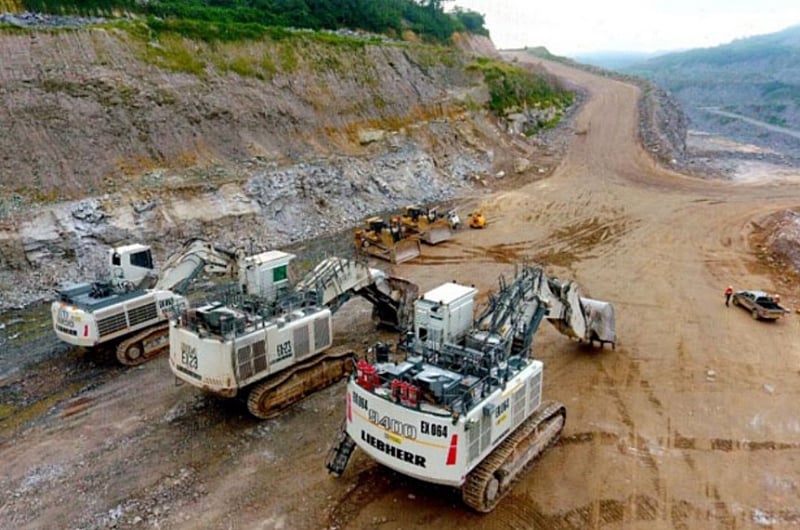The Damang Gold Mine, located in Ghana’s Western Region, has long been a strategic asset in the nation’s gold mining sector. However, beyond its economic significance, Damang has become the center of legal disputes and political maneuvering, particularly in relation to Engineers and Planners (E&P), a Ghanaian-owned company, and its mineral concessions. The latest threats of legal action from the NPP micro minority, led by Annor Dompreh, mirror past disputes where Ghanaian companies found themselves at odds with state regulatory decisions that favored foreign firms, notably Chinese entities.
The intersection of legal precedents, economic interests, and political motivations in Ghana’s mining governance raises critical questions: Should locally owned enterprises like E&P be protected, or does political rivalry dictate regulatory policies? This article delves into the history, implications, and policy recommendations needed to establish clarity and fairness in Ghana’s mineral concession allocations.
Historical Context: The E&P Mineral Concession Dispute
Engineers and Planners (E&P), a Ghanaian company, has faced legal and regulatory challenges over mining concessions that were allegedly granted to Chinese firms under controversial circumstances. The dispute highlights broader concerns regarding Ghana’s resource governance, including the fairness of concession allocations and the role of political influence in determining access to mineral rights.
The tension escalated when Annor Dompreh and the NPP micro minority signaled legal threats, reminiscent of earlier disputes where government decisions appeared to favor foreign corporations over local Ghanaian enterprises. This trend, critics argue, undermines economic sovereignty, allowing external entities to dominate Ghana’s mineral wealth, often to the detriment of local businesses and sustainable economic policies.
Legal Precedents and Mining Governance Framework
Several cases in Ghana’s mining history have set legal precedents that continue to shape resource allocation:
1. The Awaso Bauxite Case – A dispute over mining rights given to foreign firms, raising concerns about inadequate consultation with local stakeholders.
2. The Gold Royalties Monetization Controversy – Ghana’s failed attempt to securitize mineral revenues, highlighting weaknesses in mining contract negotiations.
3. E&P’s Ongoing Mineral Concession Battle – A test case for whether Ghana prioritizes local ownership over foreign investment in its mining industry.
These precedents underscore the urgent need for mining policy clarity that protects both state interests and local enterprises, ensuring transparent concession allocations free from political interference.
Economic Implications of Mining Concession Policies
The allocation of mineral concessions plays a crucial role in Ghana’s economic stability, influencing job creation, revenue generation, and sustainable development. However, disputes like those involving E&P and Chinese firms introduce uncertainty into investor confidence and can deter long-term economic planning.
Key Economic Considerations:
Local Business Empowerment – Ghanaian-owned companies like E&P contribute to economic independence, reducing reliance on foreign mining firms. Revenue Transparency – Mineral concessions must be fairly distributed to maximize state revenue while preventing resource exploitation by external entities. Long-Term Sustainability – Policy clarity is essential to prevent repetitive legal disputes that destabilize mining sector investments.
Policy Recommendations for Fair Resource Governance
To address these emerging challenges, Ghana’s Ministry of Lands and Natural Resources must implement clear and enforceable mining regulations that prioritize economic fairness and national interest.
1. Reform Concession Allocation Processes
Establish strict guidelines ensuring that local companies are not sidelined in favor of foreign firms. Mandate public disclosure of all mineral concession agreements, preventing secret deals that compromise transparency.
2. Strengthen Legal Protections for Ghanaian-Owned Enterprises
Codify legal frameworks that protect Ghanaian businesses like E&P, ensuring fair opportunities in mining sector tenders. Introduce dispute resolution mechanisms to avoid prolonged legal battles that disrupt economic stability.
3. Enhance Regulatory Independence
Prevent political interference in mineral concession allocations by establishing an independent regulatory body. Conduct third-party audits of mining contracts, ensuring adherence to environmental and economic sustainability goals.
4. Prioritize Sustainable Mining Policies
Implement eco-friendly mining practices, reducing damage to landscapes and water bodies in concession areas. Strengthen environmental oversight to ensure responsible resource extraction that benefits both the state and local communities.
Ghana Must Choose Transparency Over Political Influence
The ongoing disputes surrounding E&P, Damang, and mineral concessions granted under questionable circumstances highlight the fragility of Ghana’s resource governance framework. Political interference, favoritism toward foreign firms, and legal uncertainty continue to undermine economic autonomy in the mining sector.
Ghana stands at a crossroads—whether it will prioritize transparency, legal consistency, and local enterprise empowerment, or allow political tensions to shape its mining policies. The resolution of these issues must not be dictated by partisan interests but by a commitment to fair resource management, economic sustainability, and national sovereignty.
Retired Senior Citizen
Teshie-Nungua
[email protected]


